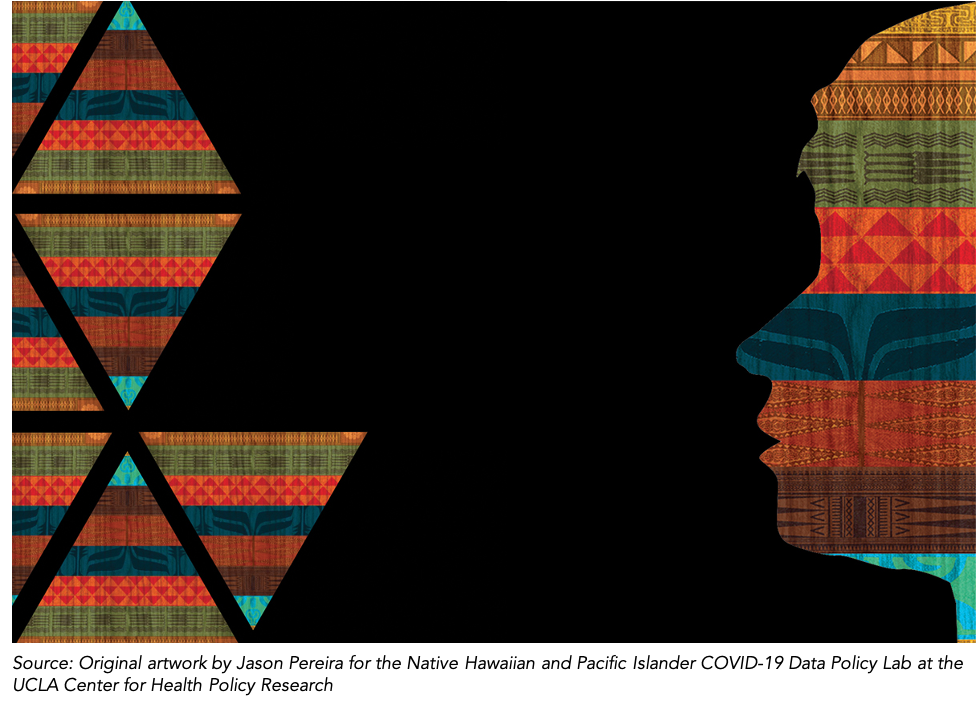News & Updates

The Native Hawaiian Data Landscape: Making Data Available to Better Address Household Need
Justin Hong began working at the intersection of data and the Native Hawaiian community in 2010. Though he’s observed challenges inherent to cross-sector collaboration as well as barriers to data accessibility over the years, Hong is hopeful given the progress made to date. Looking ahead, Hong sees the potential for further strategic growth and collaboration in the field of Native Hawaiian data and accessibility.

New Platform Provides Much-Needed Data on COVID-19 Impacts Among Native Hawaiians and Pacific Islanders
Last month, the UCLA Center for Health Policy Research unveiled its Native Hawaiian and Pacific Islander COVID-19 Data Policy Lab and corresponding NHPI COVID-19 Data Policy Lab Dashboard in an effort to address the dearth of information regarding the disease’s impact on these groups. Why is the launch of the Lab significant for NHPI researchers, and what can decision- and policy makers learn from the data the Lab makes available? We explore a few answers…

How Good Data Can Advance Health Equity
Research has consistently found Native Hawaiians and Pacific Islanders (NHPI) are at increased risk of a range of preexisting and underlying health inequities, which in turn places members of these communities at increased risk of infection and severe illness from COVID-19. During the current pandemic, the disproportionality of the disease’s impact distills the health inequities borne by our state’s Pacific Islander community: currently, 30 percent of confirmed COVID-19 cases are among non-Native Hawaiian Pacific Islanders, although they constitute only 4 percent of Hawaii’s population. Recent media coverage suggests, despite recognizing Pacific Islanders’ heightened health risks for the disease, Hawaii state health officials were unprepared to adequately address the needs of this institutionally underserved community during the pandemic.
How can Hawaii better serve the health needs of Pacific Islander communities, particularly as the state wrestles with the impacts of COVID-19? Good data can certainly be part of the solution. What might “good data” mean, in this context?
